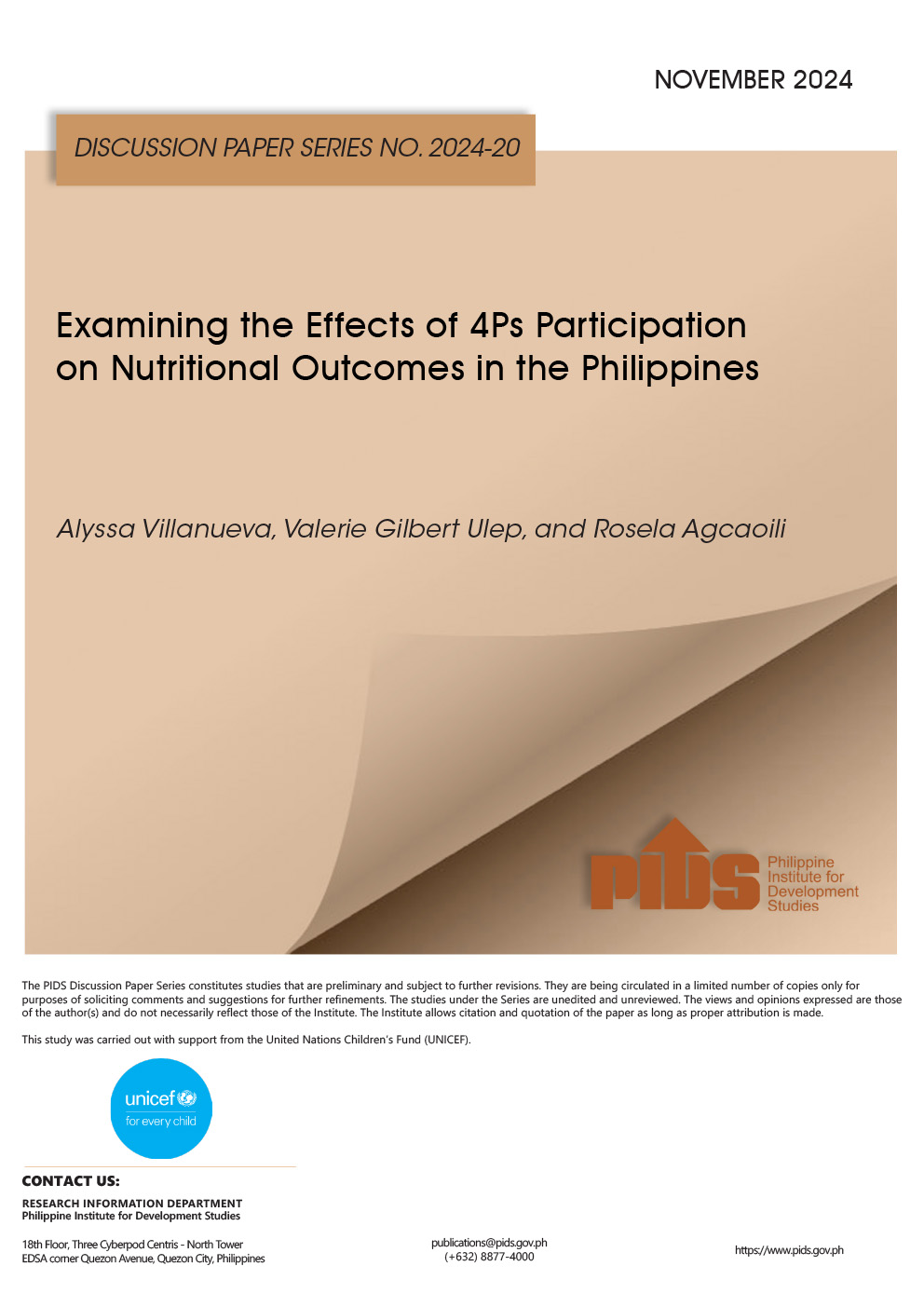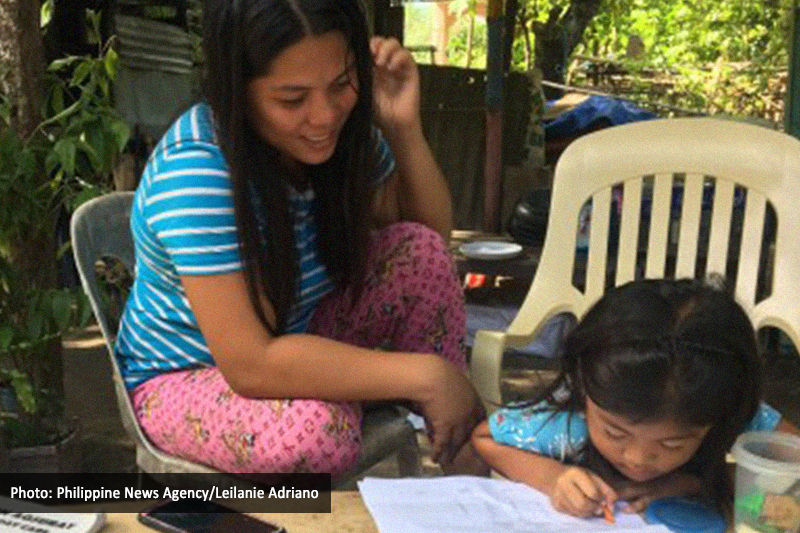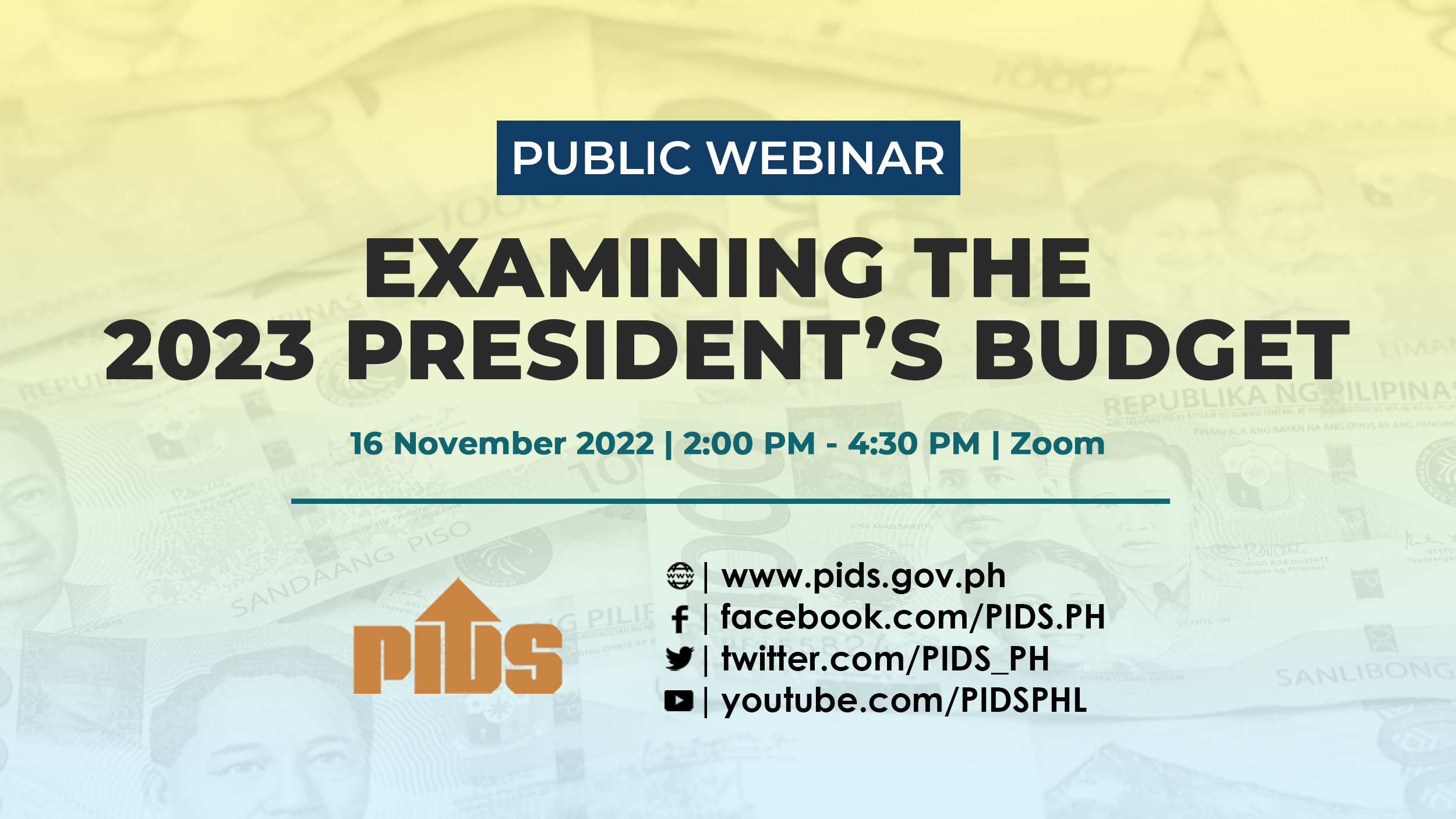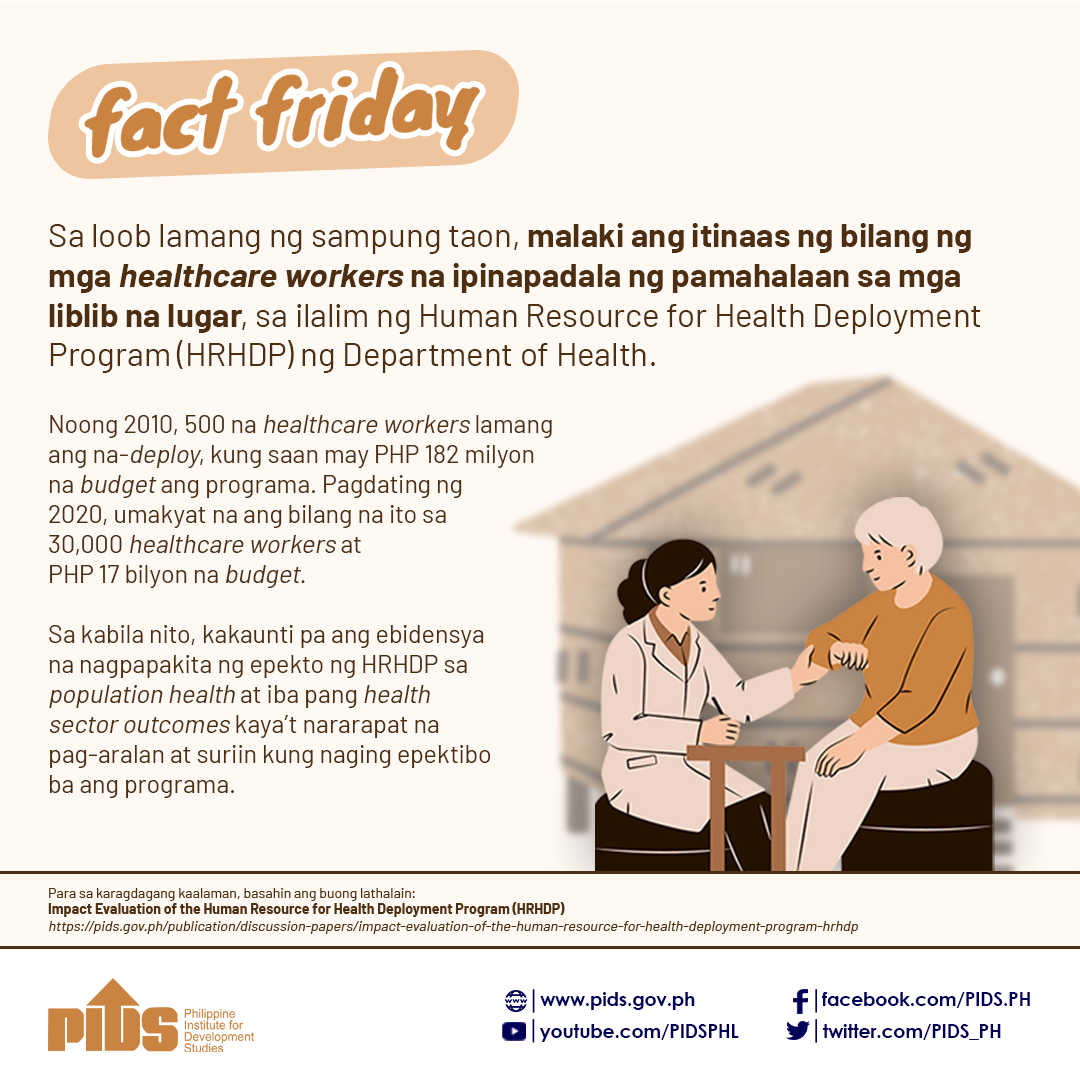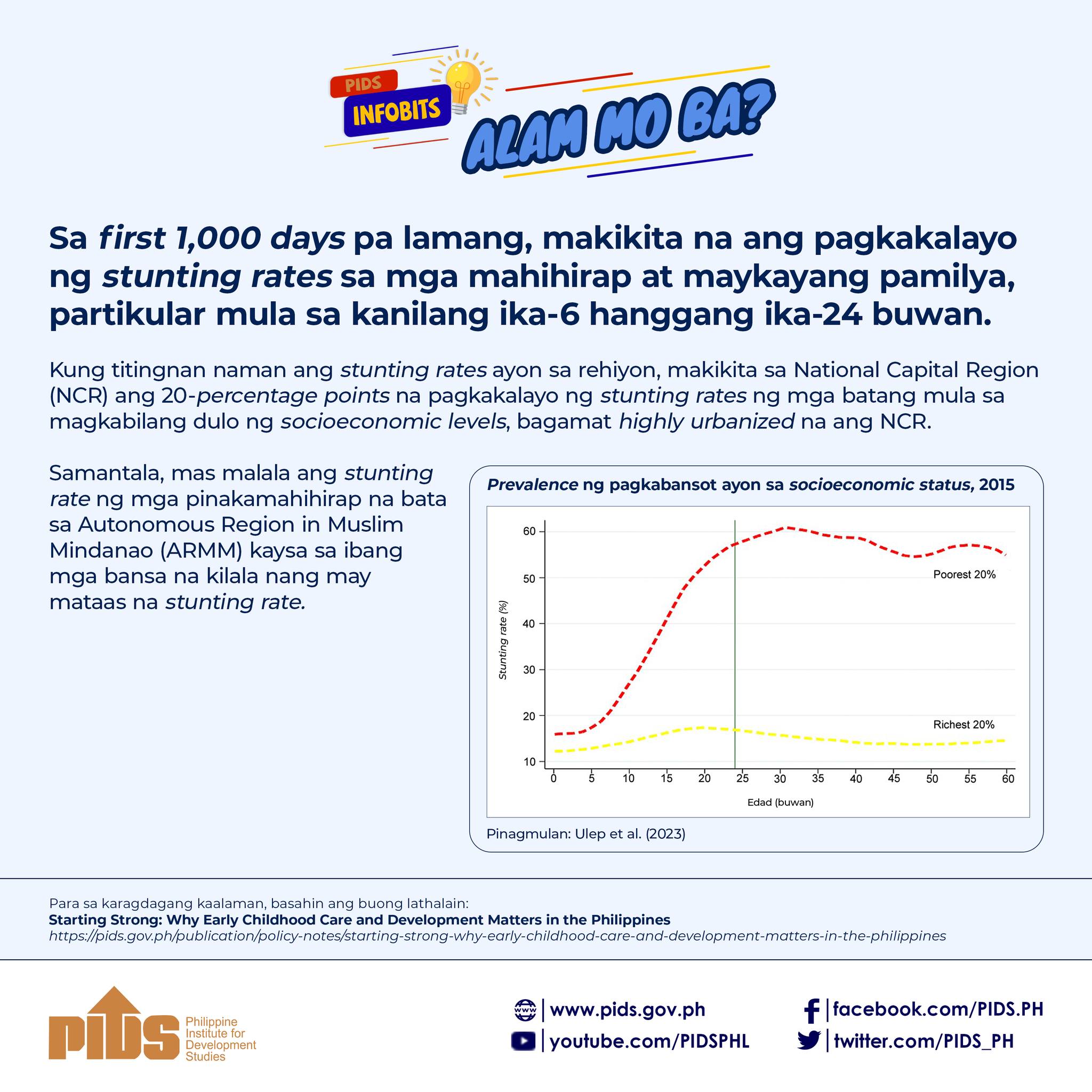QUEZON CITY, June 25 -- Keeping children healthy and in school is now a reality among poor families who are beneficiaries of the Pantawid Pamilyang Pilipino Program, the government’s flagship poverty reduction program which invests in human capital, the Department of Social Welfare and Development (DSWD) on Wednesday said.
"Sa tulong ng programa, kaya nilang baguhin ang kanilang buhay tungo sa kaunlaran (With the program’s help, they can change their lives for the better),” DSWD Secretary Dinky Soliman said.
DSWD said that based on a research conducted by the Philippine Institute for Development Studies (PIDS) in May 2015, "the highest increase in school attendance among children five years old and below occurred among families headed by poorly educated individuals, which proves that mandatory kindergarten, coupled with the conditional cash transfer program delivered the largest benefit to the poor."
The PIDS study indicates that the expansion of Pantawid Pamilya significantly contributed to the increase in enrollment of pre-school and elementary students. As partner-beneficiaries, parents are required to send their 3-18 year old children to school, and they must attend at least 85 percent of the school days.
Moreover, the PIDS study showed that in 2008, only 47.2 percent of children in the poorest families attended preschool, compared to 82.1 percent of children in the upper middle-income families, amounting to a 34.9 percent difference. In 2013, the size of this difference shrank down to 5 percent because of large gains in getting children from the poorest families into kindergarten.
"By 2013, 92.2 percent of the poorest bracket families were attending kindergarten, almost equal to that of the richest at 98.3 percent. Since early education results in gains in primary school performance and beyond, the income gap results in early education gaps, which in turn results in overall achievement gaps between the rich and the poor,” the study says.
DSWD data showed that from January to December 2014, attendance of 3-5 year old children in day care centers and pre-school, and 6-18 year old in primary and secondary schools achieved a 96.3 percent compliance rate.
"This proves that given the opportunity, poor families have the capacity to rise above their situation and achieve positive changes,” Sec. Soliman added.
Pantawid Pamilya is on its seventh year of implementation having started in 2008. As of 2015, the program has expanded to 41,519 barangays in 144 cities and 1,48 municipalities in 80 provinces with 4,424,705 registered active households nationwide.(DSWD)

